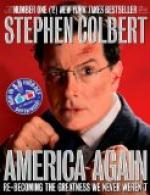All afternoon we worked, and by the evening the dining-room was transformed: blue cloths and lace runners on the deal side-table and improvised pigeon-holes; nicknacks here and there on tables and shelves and brackets; pictures on the walls; “kent” faces in photograph frames among the nicknacks; a folding carpet-seated armchair in a position of honour; cretonne curtains in the doorway between the rooms, and inside the shimmering white net a study in colour effect—blue and white matting on the floor, a crimson cloth on the table, and on the cloth Cheon’s “silver” swan sailing in a sea of purple, blue, and heliotrope water-lilies. But best of all were the books row upon row of old familiar friends; nearly two hundred of them filling the shelved panel as they looked down upon us.
Mac was dazzled with the books. “Hadn’t seen so many together since he was a nipper”; and after we had introduced him to our favourites, we played with our new toys like a parcel of children, until supper time.
When supper was over we lit the lamp, and shutting doors and windows, shut the Sanguine Scot in with us, and made believe we were living once more within sound of the rumble of a great city. Childish behaviour, no doubt, but to be expected from folk who can find entertainment in the going to bed of fowls; but when the heart is happy it forgets to grow old.
“A lighted lamp and closed doors, and the outside world is what you will it to be,” the Maluka theorised, and to disprove it Mac drew attention to the distant booming of the bells that swung from the neck of his grazing bullocks.
“The city clocks,” we said. “We hear them distinctly at night.”
But the night was full of sounds all around the homestead, and Mac, determined to mock, joined in with the “Song of the Frogs.”
“Quart pot! Qua-rt-pot!” he croaked, as they sang outside in rumbling monotone.
“The roll of the tramcars,” the Maluka interpreted gravely, as the long flowing gutturals blended into each other; and Mac’s mood suddenly changing he entered into our sport, and soon put us to shame in make-believing; spoke of “pining for a breath of fresh air”; “hoped” to get away from the grime and dust of the city as soon as the session was over; wondered how he would shape “at camping out,” with an irrepressible chuckle. “Often thought I’d like to try it,” he said, and invited us to help him make up a camping party. “Be a change for us city chaps,” he suggested; and then exploding at what he called his “tomfoolery,” set the dining-net all a-quivering and shaking.
“Gone clean dilly, I believe,” he declared, after thinking that he had “better be making a move for the last train.”
Then, mounting his waiting horse, he splashed through the creek again, and disappeared into the moonlit grove of pandanus palms beyond it.
The waggons spelled for two days at the Warlochs, and we saw much of the “Macs.” Then they decided to “push on”; for not only were others farther “in” waiting for the waggons, but daily the dry stages were getting longer and drier; and the shorter his dry stages are, the better a bullock-puncher likes them.




